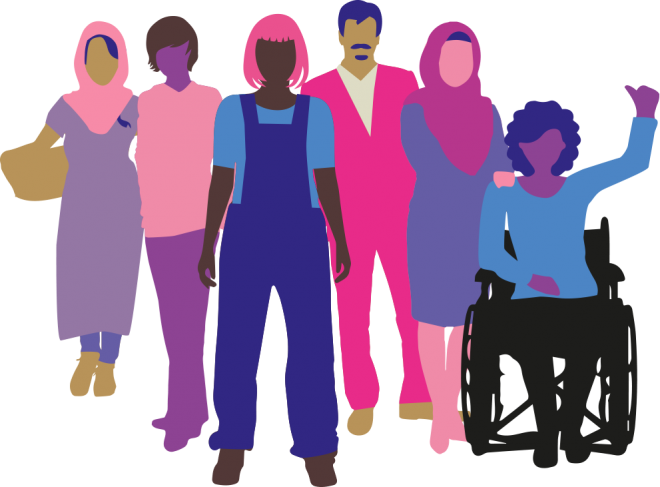31-03-2020
Women's rights and gender equality are under additional pressure in times of crisis. WO=MEN, together with 41 other organizations, calls on the government for international solidarity to combat existing (power) inequalities worldwide.
The statement:
Our lives have changed completely in a short time as the world is being overwhelmed by the effects of this virus. We are all looking for a way to deal with new fears and uncertainties. At the same time, it is mainly solidarity with and protection for the most vulnerable that drives us.
Now more than ever, we are thinking about each other, taking good care of our family and friends and those who need extra attention.
In the Netherlands, strong measures are in place to protect the vulnerable, prevent the spread of the virus and mitigate the social and economic impact on people and companies.
But we are concerned that international coordination and solidarity in combating and tackling this worldwide problem is insufficient. Each country has its own approach within its own borders. Although that is understandable in the short term, the virus does not stop at the border. This pandemic can only be controlled with a coherent, cross-border approach.
We will have to show solidarity with vulnerable people everywhere in the world. As human beings we owe this to ourselves and to each other. But it is also necessary for global public health, and therefore in the Dutch interest. Curbing this pandemic is also essential for the economy and our social security.
Many developing countries are just now beginning to experience the pandemic, and most do not have a high-quality health care system, good waterworks or a stable food supply. Health care in these countries will quickly collapse without additional support. On average, developing countries have 50 times fewer doctors and 20 times fewer hospital beds per person than in Europe. The virus will also have an impact on the food supply, and finding reliable information about the virus and its control is a problem in many countries.
Not to mention fragile states that have been weakened by years of conflict and have to deal with overcrowded refugee camps and slums. Here millions of people live in close quarters, without electricity, clean drinking water, or a regular food supply. How can they keep a safe distance from each other and wash their hands frequently?
In addition, measures in some countries threaten to work against people and increase existing inequalities. We see parliaments being closed and space for free press, opposition and human rights defenders limited. Discrimination is on the rise, and women's and girls' rights are under pressure. Think, for example, of marginalized and persecuted groups - like the LGBTI community - that do not have access to good health care. Or women who are structurally underpaid and have to take risks because they cannot afford to stay at home.
Support for developing countries and civil society organizations in these countries is necessary, especially in this time of crisis, and should be part of the emergency measures taken by this cabinet. Finally, it is with very good reason that António Guterres, Secretary-General of the United Nations, called on countries this week to contribute to an international emergency fund to deal with the COVID-19 crisis.
Without international solidarity, we do not only undermine efforts to tackle the pandemic, but also the values of our society.
-----
Signatories:
ActionAid
Amref Flying Doctors
Arisa
CARE Nederland
Centre for Safety and Development
CNV International
COC Nederland
Cordaid
Dorcas
Foundation Max van der Stoel
Free Press Unlimited
Heifer
Hivos
ICCO
International Campaign for Tibet
Justice and Peace Netherlands
Kerk in Actie
Leprazending
Liliane Fonds
Mercy Corps
Nederlands Juristen Comité voor de Mensenrechten
ONE Campaign
Oxfam Novib
Partos
Pax
Peace Brigades International - Nederland
Plan International
Prisma
Red een Kind
RNW Media
Rutgers
Save the Children
Simavi
SOS Kinderdorpen
Terre des Hommes
Tear
Verre Naasten
Wemos
Woord en Daad
WO=MEN
Women Engage for a Common Future
